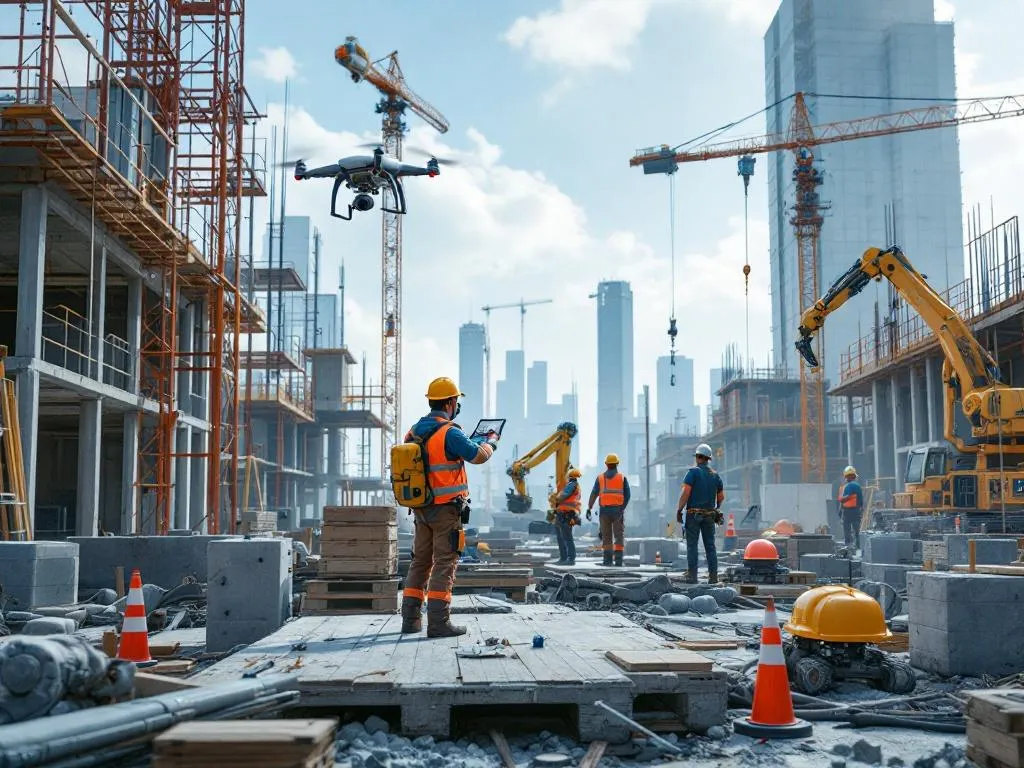
Building a Better Future: Exploring the Innovations in Construction Services
The construction industry is continually evolving, with new advancements in construction services promising efficiency, sustainability, and quality. The advent of innovative techniques, technologies, and materials is propelling the industry towards a brighter future. These advancements are not only beneficial for the construction sector but also for the environment, creating a win-win situation for all stakeholders.
One of the significant advancements in construction services is the increased use of Building Information Modelling (BIM). BIM is a digital representation of the physical and functional characteristics of a building. This technology makes it easier for construction professionals to share and exchange information, facilitating seamless collaboration among different teams involved in a construction project. With BIM, construction projects can be completed faster, with fewer errors, leading to significant cost savings.
The use of drones is another groundbreaking development in the field of construction services. These unmanned aerial vehicles can be used for a wide range of activities in construction, such as surveying, mapping, and inspecting structures. Drones can access hard-to-reach areas, reducing the risk of accidents and injuries. They can also collect data in real-time, helping construction professionals make informed decisions and improve the efficiency of construction processes.
3D printing is also revolutionizing the construction industry. This technology allows construction companies to build complex structures with precision and speed. Apart from reducing construction time, 3D printing also reduces waste, making it a more sustainable option. Moreover, with 3D printing, construction companies can create customized designs, enhancing the aesthetic appeal of buildings.
In terms of materials, the construction industry is seeing a shift towards more sustainable options. For instance, the use of recycled materials is gaining popularity. These materials are not only environmentally friendly but also cost-effective. Similarly, the use of energy-efficient materials is on the rise. These materials can help reduce energy consumption, resulting in lower utility bills for building owners.
Another noteworthy advancement in construction services is the use of prefabricated components. Prefabrication involves the assembly of building components off-site and their installation on-site. This technique speeds up construction time, reduces waste, and improves the quality of construction. Moreover, with prefabrication, construction activities can continue irrespective of weather conditions, ensuring that projects are completed on time.
In addition to these advancements, the construction industry is also embracing digital technologies. Construction professionals are using software tools for project management, design, and estimation. These tools help streamline construction processes, improve productivity, and enhance the accuracy of construction projects.
The adoption of smart technologies is also transforming construction services. Smart buildings, equipped with sensors and control systems, are becoming more common. These buildings can monitor and control various functions such as heating, ventilation, lighting, and security, improving the comfort and safety of occupants.
Moreover, the construction industry is also focusing on green building practices. Green building involves the use of sustainable design principles and construction techniques to minimize the environmental impact of buildings. These practices include energy-efficient design, use of renewable energy sources, water conservation, and waste reduction.
In conclusion, the future of construction services looks promising, with numerous advancements paving the way for efficiency, sustainability, and quality. These advancements are not only beneficial for the construction industry but also for society at large. They have the potential to create buildings that are more comfortable, safer, and environmentally friendly. By embracing these advancements, the construction industry can contribute to a better and more sustainable future.
As the construction industry continues to evolve, it is crucial for construction professionals to stay updated with the latest trends and developments. By doing so, they can leverage these advancements to improve their services and deliver superior results. The future of construction services is indeed exciting, and it is up to the industry to seize the opportunities that these advancements offer.
